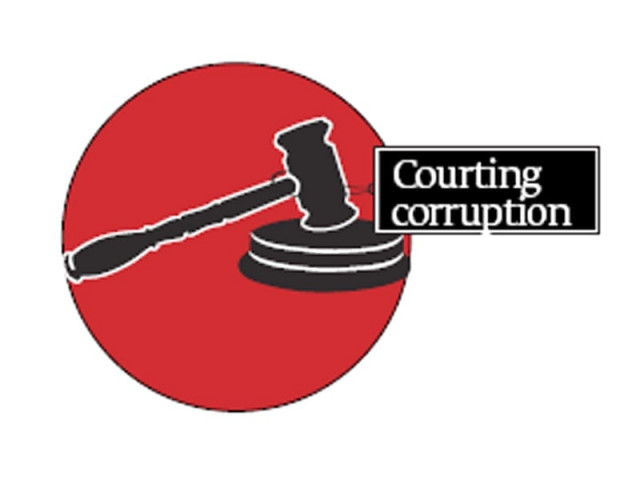Justice denied through delays, bribes and unions
Cases routinely linger for years due to corruption in the legal system.

Justice denied through delays, bribes and unions
A lot has changed in Pakistan since 1975. One thing that has not is the legal state of Fazal Mateen’s petition in the civil courts.
Mateen has been embroiled in a property dispute with his tenant, Chiragh Din, for nearly 40 years. Unfortunately, this is a common occurrence in the Pakistani legal system, and can be explained by that common national cancer – corruption.
In the petition, Mateen maintains that he was allotted his property when he migrated from India at Partition. At this tumultuous time, he gave Din and his family shelter. In his response in court, Din argued that the portion he lived in has always belonged to his family.
Over the years, witnesses have been called to hearings and the case lingered on until Mateen died. A few years later Din also died. Subsequently, their legal heirs carried on the dispute – and the situation is much worse now, as there are almost 70 heirs on both sides.
“They have spent more than the worth of the property fighting for its ownership and yet there has been no justice,” Abdul Khaliq, a high court lawyer representing Mateen’s family, says. “But we are helpless against delay tactics, and the lawyers are responsible for it,” he adds.
Lawyers have several delay tactics at their disposal, ranging from sending in junior associates to hearings to filing numerous pre-trial applications.
“The client demands us to buy time for him,” says a lawyer at the Lahore High Court, wishing to remain anonymous. When juniors are sent for a hearing, a usual excuse heard in the courtroom is that the legal counsel had to be in the Supreme Court or the High Court, and hence a new date should be fixed, delaying the process further.
The lawyer feels that judges need to be more vigilant and understand the intent of the lawyers behind such moves. “The law itself has no provision for stopping these delay tactics, so everyone exploits it,” he says.
According to the lawyer, changing dates by paying off the staff of judges is a routine practice in the lower courts. “Money does the trick and since there is no computerisation of record keeping, it is easy to get the date extended,” he adds.
A case in point is the example of a recent clerk in a civil court in Lahore. The clerk, Iqbal, was arrested after it emerged that important documents went missing from a file he was maintaining for a case being heard in the court. “These clerks have so much work to do, that they hire extra help, and this extra help is then used in corruption at lower courts,” says Munir Bhatti, a lawyer at the sessions court.
According to Munir, besides the corruption of judicial staff and routine delay tactics, the unwarranted influence of lawyers’ unions also has to be taken into account.
He says that rich clients often hire lawyers who have positions in different bars. And since judges want to have a good relationship with these bar representatives, they favour them.
“Mujahid Mustaqeem, an additional session judge appointed recently, told me in a conversation that judges are scared to work in Lahore because of the influence of bars,” Munir says, adding that the bar association representatives routinely blackmail lower court judges. Judges apparently stay quiet because if such lawyers have the backing of the whole bar behind them, they can make like very difficult for a judge by concocting stories about his corruption, punctuality, etc, and taking these complaints to higher judges.
Lahore High Court Bar Association President Asghar Gill puts the focus on judges. “The authority in a court is judge, and there are times when he gets influenced, but that is because he is weak himself,” he says.
According to Gill, who heads a 22,000-strong union of lawyers, there are some elements that misuse the power of bars but not everyone does so. “The only way this perception can be eliminated is if lawyers stop taking cases in-between a hearing, when clients approach them due to their connections in the lawyers bar associations,” he adds.
Published in The Express Tribune, January 31st, 2012.


















COMMENTS
Comments are moderated and generally will be posted if they are on-topic and not abusive.
For more information, please see our Comments FAQ